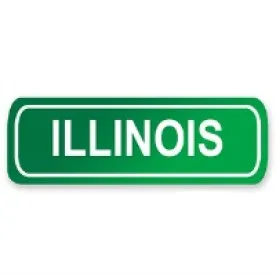The Illinois First District Appellate Court affirmed a trial court’s finding that investigative documents prepared by a hospital following a sentinel event were not privileged from discovery under the insurer-insured privilege or the state’s peer review statute, known as the Illinois Medical Studies Act.1
The three documents at issue – a Sentinel Event Report, Investigation Summary, and Narrative of Investigatory Findings (“Narrative of Findings”) – were prepared by employees of Chicago Behavioral Hospital (the “Hospital”) following a patient's death.2 In accordance with the Hospital’s policy, a Hospital employee investigated the sentinel event and prepared a Sentinel Event Report and Narrative of Findings.3
The Sentinel Event Report was provided to and reviewed by the Hospital’s Quality Review Committee with the intention of increasing knowledge about the event, providing strategies for prevention of the event reoccurring, and improving patient safety.4
The Hospital’s Director of Performance and Risk Management prepared an Investigation Summary for the Performance Improvement and Risk Management Department, as part of the Hospital’s quality review process, and provided it to the Hospital’s Quality Improvement Committee.5 Pursuant to the Hospital’s policy, such Investigation Summaries were automatically prepared after each sentinel event involving death or serious injury at the Hospital to evaluate the Hospital’s quality assurance process and identify necessary changes to improve patient safety and reduce patient morbidity and mortality.6
The Narrative of Findings contained summaries of interviews conducted with care providers. The Narrative of Findings was primarily prepared to be submitted to the Hospital’s liability insurance provider to ensure the Hospital would receive liability insurance coverage in the event of a related lawsuit.7
The patient’s family filed a wrongful death action against the Hospital.8 During discovery, the Hospital refused to produce the three documents, arguing that the Sentinel Event Report and Investigation Summary were privileged under the Illinois Medical Studies Act and the Narrative of Findings was privileged under the insurer-insured privilege.9
After an in camera inspection of the documents and privilege log, the trial court ruled that the Hospital had failed to meet its burden of establishing the three documents were privileged.10 The Hospital filed a Motion to Reconsider and submitted its Policy and Procedure Manual for investigating sentinel events, along with an affidavit of the Hospital’s Director of Performance and Risk Management that outlined the investigative steps taken following the patient’s death and the manner in which the documents had been created and used by the Hospital.11
The trial court denied the Hospital’s Motion to Reconsider and again ordered the documents be produced.12 The Hospital refused to produce the documents. In response to an Emergency Motion to Compel, the Hospital requested the trial court find the Hospital in “friendly contempt” to permit the Hospital to file an interlocutory appeal.13 The trial court granted the request, held the Hospital in civil contempt, and imposed a $1.00 penalty.14
On appeal, the Hospital argued the Sentinel Event Report and Investigation Summary were privileged under the Illinois Medical Studies Act because they were prepared in the course of the Hospital’s quality review process – with the Sentinel Event Report prepared to provide information to the Hospital’s Quality Review Committee and the Investigation Summary prepared for the Quality Improvement Committee.15 As for the Narrative of Findings, the Hospital argued it was privileged under the insurer-insured privilege because it was created for the purpose of obtaining insurance coverage for an anticipated lawsuit and to protect the Hospital’s interests.16 The appellate court disagreed.
The appellate court found that the Hospital had failed to satisfy its burden and ordered that all three documents be produced.17 The appellate court acknowledged that the Illinois Medical Studies Act protects disclosure of the mechanisms of the peer review process, including information gathering and deliberations leading to the ultimate decision rendered by a peer review committee, but importantly clarified that it does not protect against the discovery of information generated before the peer review process begins or after the peer review process ends.18 The appellate court emphasized that (1) in order for the privilege to apply, a hospital committee must be engaged in the peer review process, and (2) the Illinois Medical Studies Act does not protect documents that were created before a peer review committee or its designee authorizes an investigation of a particular incident.19
The appellate court found that there was no evidence that the authors of the Sentinel Event Report and Investigation Summary had been directed to create the documents by a peer review committee.20 While the Sentinel Event Report was later reviewed by a peer review committee, and the Investigation Summary subsequently provided to the Quality Improvement Committee, the documents had not been prepared at the request of a peer review committee.21 A peer review committee – and not the Hospital itself – was required to designate individuals to investigate the incident in order for the resulting documents to be protected by the privilege.22
The appellate court also noted that if hospitals were allowed to invoke the privilege in situations where a peer review committee was simply provided earlier-acquired information after the fact, hospitals would be able to effectively insulate from disclosure all adverse facts known to its medical staff, except for those matters contained in medical records.23
In relation to the Narrative of Findings, the appellate court explained that the insurer-insured privilege, as an offshoot of the attorney-client privilege, only extends to communications between an insurer and insured where the insurer has a duty to defend.24 A party seeking to invoke the privilege must prove: “(1) the identity of the insured; (2) the identity of the insurance carrier; (3) the duty to defend the lawsuit; and (4) that a communication was made between the insured and agent of the insurer.”25
The appellate court noted that in cases where the privilege was found to apply, specific evidence had been submitted demonstrating the statements at issue were made in the context of a duty to defend the particular lawsuit.26 In this case, the appellate court found that the Hospital failed to put forth sufficient facts to demonstrate a duty to defend the lawsuit.27 The appellate court was not persuaded by the Hospital’s argument that the author of the Narrative Findings had assumed that the insurer had a duty to defend.28 The appellate court referenced the fact that the Hospital had not provided terms of its insurance policy and that it remained unknown whether the insurer was aware of a potential claim at the time the Narrative of Findings was provided.29 Finding a lack of factual support for a duty to defend, the appellate court found that the Hospital failed to demonstrate that the insurer-insured privilege applied and, therefore, ordered the Narrative of Findings be produced.30
This decision highlights the importance of understanding both the peer review privilege and insurer-insured privilege and the steps that must be taken at the outset to protect discovery of peer review information in Illinois.
1 Ritter v. 2014 Health, LLC, d/b/a Chicago Behavioral Hospital, et al., 2020 IL App (1st) 190370-U, 25, 30, 33; 735 Ill. Comp. Stat. Ann. 5/8-2102 (West 2020).
2 The Hospital defined “sentinel event” as “an unexpected event involving death or serious physical or psychological injury or the risk thereof.” Ritter at 6.
3 Id. at 6, 8.
4 Id. at 6.
5 Id. at 7.
6 Ritter, at 7.
7 Id. at 8.
8 Id. at 4.
9 Id. at 2.
10 Ritter, at 4.
11 Id. at 5.
12 Id. at 10.
13 Id. at 11.
14 Ritter, at 11.
15 Id. at 13.
16 Id. at 26.
17 Id. at 25, 30.
18 Ritter, at 16.
19 Id. at 23.
20 Id. at 25.
21 Id.
22 Ritter
23 Id.
24 Id. at 27.
25 Id.
26 Id. at 29.
27 Id.
28 Id. at 30.
29 Id.
30 Id.




 />i
/>i

